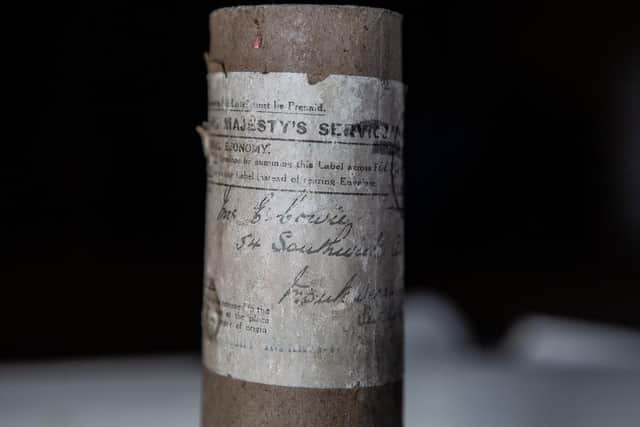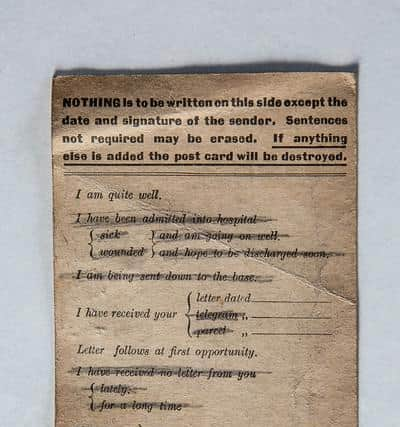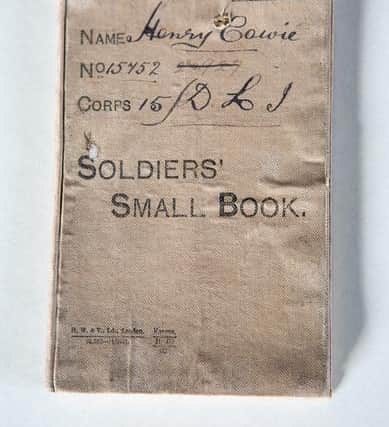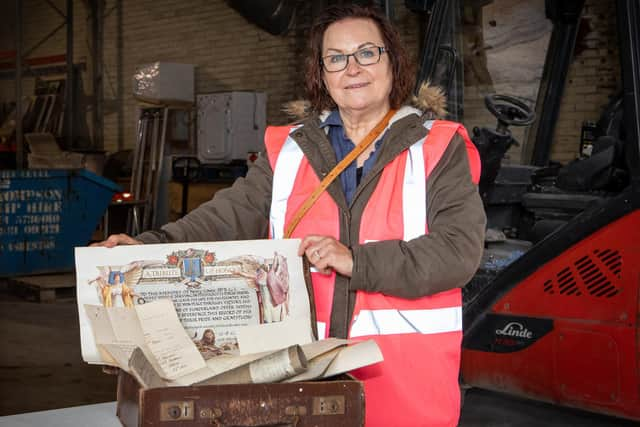The tragic story has been discovered of a father and son killed just days apart in the same war
and live on Freeview channel 276
And now, descendants can finally learn of the tragic tale of John and Henry Cowie from Sunderland.
The suitcase, discovered by staff at Sunderland-based Thompson Waste, was discarded as part of a house clearance. Inside were letters and documents.
Advertisement
Hide AdAdvertisement
Hide AdAnne Ganley, the owner of Thompson Waste Centre at the Parade, Hendon is ensuring that the two men will never be forgotten by organising a memorial service and laying a stone for them at Sunderland’s Veterans Walk.


Today, she told the Sunderland Echo how relatives from South Shields, Sunderland, Doncaster, Reading, Chester-le-Street and Glasgow were among those who had got in touch about the findings.
Anne has also prepared a commemorative booklet so that every descendant can receive a memory of the men.
The story goes back to 1914, when the First World War broke out. Ellen Isabel Stephenson lived with her coal miner husband John Cowie and their eight children at Southwick Road, Sunderland.
Advertisement
Hide AdAdvertisement
Hide AdA year later, as the documents reveal, Ellen had lost both her husband and son, Henry within days of each other.


Henry joined the 15th battalion of the Durham Light Infantry and the Soldier’s Small Book, given to each man was in the case.
He rose to the rank of Corporal but was killed in action ‘at a place unknown’ on September 16, 1915, aged 18. The official notification of his death, sent to his mother, was in the suitcase.
Also found was a medal inscribed with his father, John Cowie’s name and the words, ‘he died for freedom and honour.’
Advertisement
Hide AdAdvertisement
Hide AdResearch commissioned by Anne was carried out by local historian Meg Hartford. It revealed that John died just 10 days later than his son.


However, unlike Henry, John, made it back to England and died at a War Hospital, at Croydon, aged 51. Henry was buried in 1915 in Loos-en-Gohelle, France but John’s body was returned to Wearside and he was buried at Mere Knolls Cemetery.
Now Mrs Ganley is organising a memorial service for both father and son and funding the placing of a stone at Sunderland’s Memorial Walk, which commemorates the city’s war dead.
She said: “We wanted to honour the family and it kept snowballing. We have had calls from Doncaster, Reading, Glasgow and more local. It has been lovely to speak to them all.”
Advertisement
Hide AdAdvertisement
Hide AdThe research also showed that a second son, George, also saw active duty, but survived the war.


He joined up as soon as he reached 18, in the closing months of the conflict - and among the papers in the suitcase is a letter signed by the then Secretary of State for War, Winston Churchill, thanking him for his service.
“We don’t know exactly who the case belonged to,” said Anne, “but I am pretty sure it must have been Ellen’s and to think of her carefully storing these letters and the death certificates of her son and husband, is moving beyond words.”
Historian Meg Hartford said: “This was really interesting research to do and I was able to work out who the descendants were.”